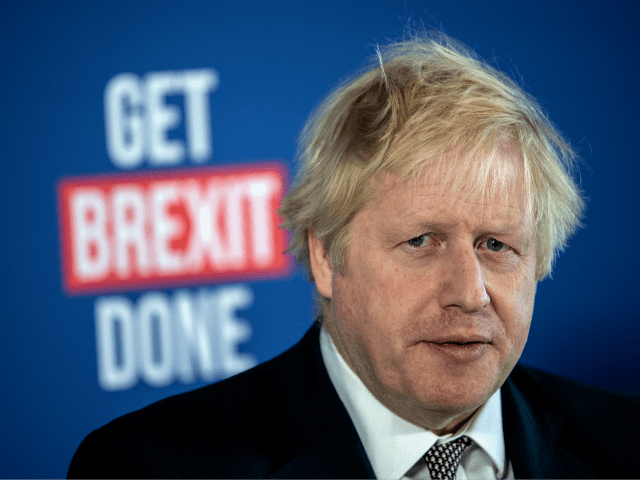Boris Johnson would say “no” to an extension to the transition period if the European Union asks for one, the prime minister’s spokesman said after the head of the International Monetary Fund (IMF) called for a delay.
On Wednesday, the government announced that London and Brussels had agreed on a timetable to continue trade negotiations in a virtual setting, due to the coronavirus pandemic putting Europe into lockdown.
When asked on Thursday if the UK would consider extending the transition period because of the Chinese coronavirus, Prime Minister Johnson’s spokesman said: “If the EU asks for an extension, we will say no.”
“An extension of the transition would prolong negotiations, delay uncertainty, and delay our own control of our borders.
“It would keep us bound by EU legislation when we need flexibility to respond to the coronavirus pandemic,” the spokesman added, according to City A.M.
The question came in response to the managing director of the IMF, Kristalina Georgieva, saying that because of “unprecedented uncertainty” caused by coronavirus, it would be “wise not to add more on top of it” by the UK leaving the bloc’s institutions.
Speaking to the BBC on Tuesday, Ms Georgieva said: “I really hope that all policymakers everywhere would be thinking about [reducing uncertainty]. It is tough as it is, let’s not make it any tougher.”
Specifically, on an extension, Ms Georgieva, who is a former vice-president of the European Commission, said: “My advice would be to seek ways in which this element of uncertainty is reduced in the interests of everybody, the UK, the EU, and the whole world.”
Brexit Party leader Nigel Farage criticised the global finance chief’s remarks, saying: “As we have known for some years, the IMF is an outpost of the European Commission. Their call to extend Brexit talks into 2021 is outrageous interference.”
Chancellor: ‘We’ve Left the EU’, UK Govt Remains Committed to Brexit Timeline https://t.co/YWYLjRpyMh
— Breitbart London (@BreitbartLondon) April 15, 2020
Several people in the British left and even in the mainstream of European politics have called for a delay to the UK leaving the EU’s institutions, with the transition period set to end on the 31st of December, 2020. If sufficient progress is not reached by June, the British government has said that it will halt negotiations and spend the remainder of the period preparing to enter World Trade Organization (WTO) terms with the bloc.
David Frost, the UK’s chief EU trade negotiator, said of the suggestion: “Extending would simply prolong negotiations, create even more uncertainty, leave us liable to pay more to the EU in future, and keep us bound by evolving EU laws at a time when we need to control our own affairs. In short, it is not in the UK’s interest to extend.”
Brussels’ reactions to the IMF chief’s remarks were also luke-warm, with a diplomat telling The Times: “As so often in the past, these comments seem to be for domestic consumption, rather than us in the EU.”
Other sources speaking to the newspaper said that several European countries had even agreed that because of the pandemic crisis, an extension did not make economic sense for the UK and the country leaving the EU’s institutions without a deal would make little difference. The diplomatic source said: “Any disruption to trade if a deal is not negotiated by the end of the year will be buried… Negative effects of the exit from the single market are now cushioned in the wider context of the corona crisis.”
“The single market is basically suspended now anyway,” the source continued, adding: “So it’s probably the best situation they could hope for to get this done. Why not take the hit now and bank on any unilateral EU or bilateral national measures to alleviate the worst effects? And then trust that a modern service economy will come out of the crisis quicker than the more traditional economies of the eurozone.”
Farage: We Mustn’t Accept a Brexit Delay Because of Coronavirus https://t.co/XxNjqiLUyE
— Breitbart London (@BreitbartLondon) April 15, 2020

COMMENTS
Please let us know if you're having issues with commenting.